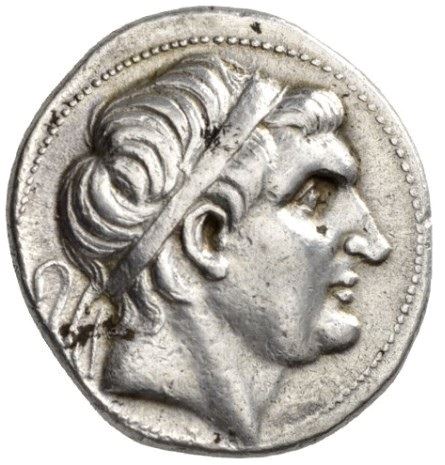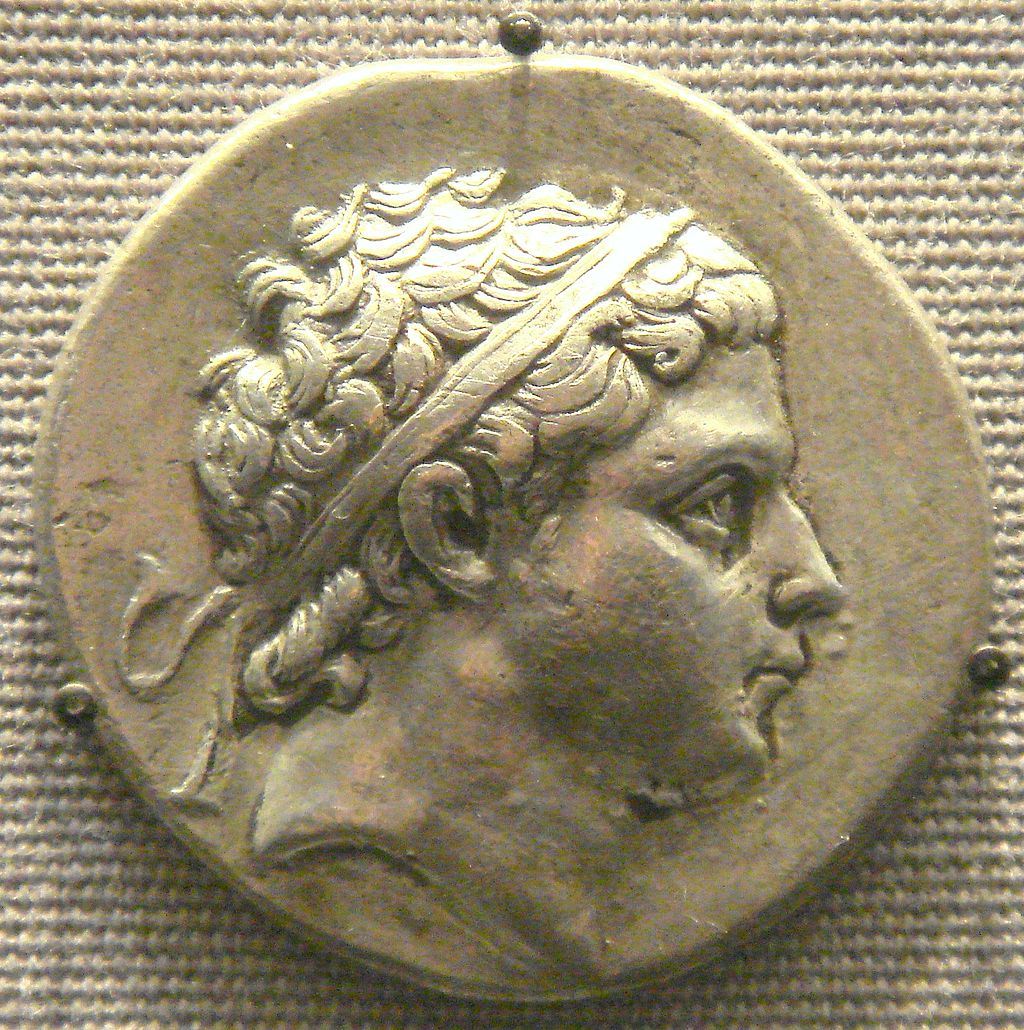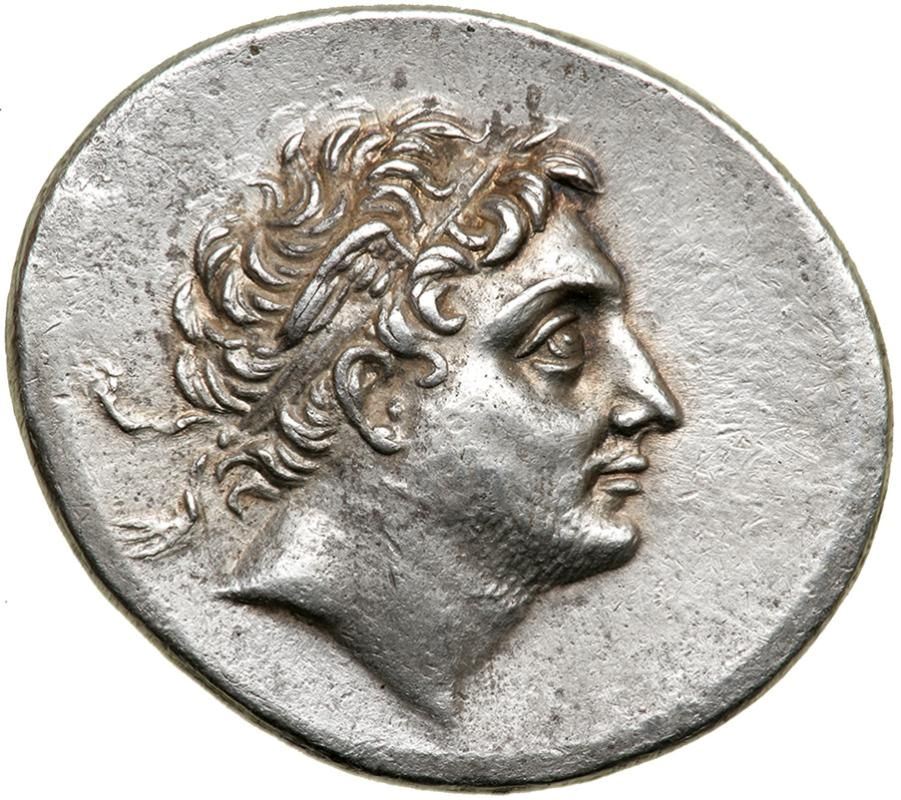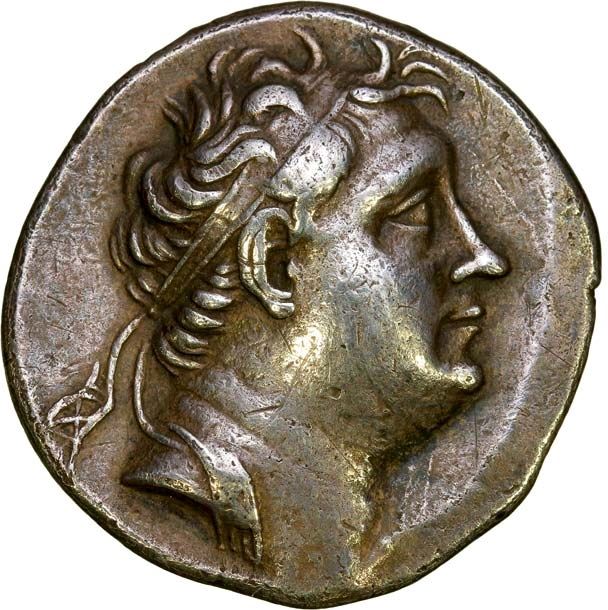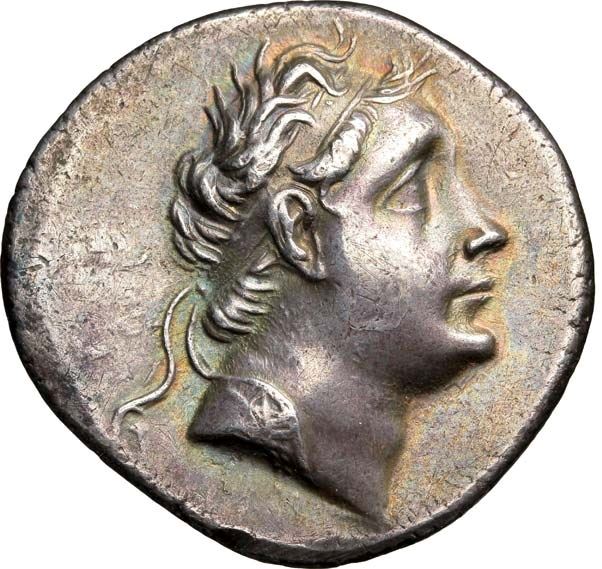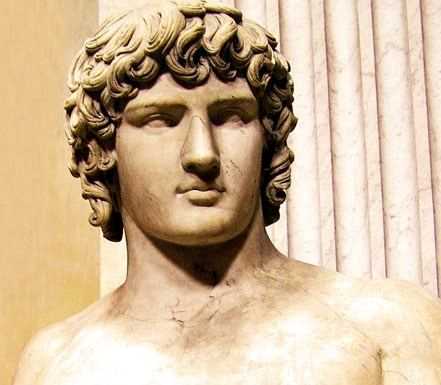The Kingdom of Bithynia was a realm in northwestern Asia Minor, founded in the early third century by Zipoetes, chieftain of the Bythyni - a Thracian tribe.
The Kings of Bithynia founded Nicomedia, which soon rose to great prosperity, and for a while the kingdom of Bithynia had a considerable standing and influence among the minor monarchies of Anatolia. But the last king, Nicomedes IV, was unable to stand against Mithridates VI of Pontus. After being restored to his throne by the Roman Senate, he bequeathed his kingdom through his will to the Roman republic (74 BC).
The Kings of Bithynia founded Nicomedia, which soon rose to great prosperity, and for a while the kingdom of Bithynia had a considerable standing and influence among the minor monarchies of Anatolia. But the last king, Nicomedes IV, was unable to stand against Mithridates VI of Pontus. After being restored to his throne by the Roman Senate, he bequeathed his kingdom through his will to the Roman republic (74 BC).
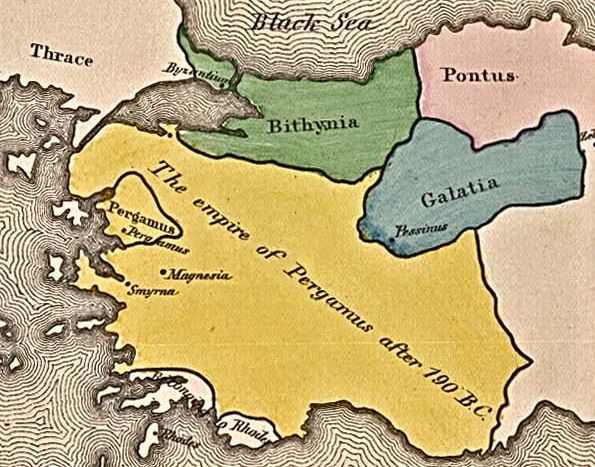
Zipoetes I was the second independent ruler of Bithynia, and the first to style himself as King. He succeeded his father Bas on the throne in about 326 BC and reigned for forty-eight years, waging successful wars with Lysimachus and Antiochus, the son of Seleucus I Nicator.
He founded a city which was called Zipoetium (after himself) at the foot of Mount Lypedron; the exact locations of...
He founded a city which was called Zipoetium (after himself) at the foot of Mount Lypedron; the exact locations of...
Zipoetes II was a ruler of Bithynia from 278 BC to 276 BC. He was a son of Zipoetes I and a younger brother to Nicomedes I.
When Nicomedes tried to kill his three brothers, Zipoetes II was the only one to escape. He then raised an insurrection against Nicomedes and succeeded in maintaining himself, for some time, in the independent sovereignty of a considerable part of Bithynia.
When Nicomedes tried to kill his three brothers, Zipoetes II was the only one to escape. He then raised an insurrection against Nicomedes and succeeded in maintaining himself, for some time, in the independent sovereignty of a considerable part of Bithynia.
Nicomedes I was the eldest son of Zipoetes I, whom he succeeded on the throne in 278 BC. He commenced his reign by putting to death two of his brothers but the third, subsequently called Zipoetes II, raised an insurrection against him and succeeded in maintaining himself, for some time, in the independent sovereignty of a considerable part of Bithynia.
To defeat Zipoetes II, Nicomedes c...
To defeat Zipoetes II, Nicomedes c...
Ziaelas was the third king of Bithyniaand a son of Nicomedes I and Ditizele. After Nicomedes I died, his second wife Etazeta of Bithynia became ruler on behalf of her infant sons. The grown-up Ziaelas, excluded from the throne, had previously fled to Armenia and taken refuge at the court of King Arsames I in Sophene.
On his father's death he immediately endeavoured to regain his rights ...
On his father's death he immediately endeavoured to regain his rights ...
Prusias I was a king of Bithynia, the son of Ziaelas of Bithynia. He was a vigorous and energetic leader; he fought a war against Byzantium (220 BC), seizing its Asiatic territory, a part of Mysia that had been in its possession for a long time.
He expanded the territories of Bithynia in a series of wars against Attalus I of Pergamum and Heraclea Pontica on the Black Sea, taking various...
He expanded the territories of Bithynia in a series of wars against Attalus I of Pergamum and Heraclea Pontica on the Black Sea, taking various...
Prusias II was the Greek king of Bithynia. He was the son and successor of Prusias I and Apama III. He became king when his father died in 189 BC. Prusias II joined with the king of Pergamon, Eumenes II in a war against King Pharnaces I of Pontus (181–179 BC). He later invaded the territories of Pergamon (156–154 BC), only to be defeated, with Pergamon insisting on heavy reparations, including 500...
Nicomedes II was the king of Bithynia from 149 to c. 127 BC. He was the son and successor of Prusias II and Apame IV. He was so popular with the people that his father sent him to Rome to limit his influence. However, in Rome, he also gained favor from the Roman Senate, forcing Prusias to send an emissary named Menas with secret orders to assassinate him. But the emissary revealed the plot, and pe...
Nicomedes III was the king of Bithynia, from c. 127 BC to c. 94 BC. He was the son and successor of Nicomedes II of Bithynia by an unnamed woman.
According to Granius Licinianus, Nicomedes III had a first wife called Aristonica and had Nicomedes with her. Aristonica died after nine days and he married Nysia, the daughter of Ariarathes VI of Cappadocia and, Laodice of Cappadocia, the sis...
According to Granius Licinianus, Nicomedes III had a first wife called Aristonica and had Nicomedes with her. Aristonica died after nine days and he married Nysia, the daughter of Ariarathes VI of Cappadocia and, Laodice of Cappadocia, the sis...
Nicomedes IV was the king of Bithynia from c. 94 BC to 74 BC. He was the first son and successor of Nicomedes III of Bithynia and Nysa.
His reign began at the death of his father. The first few years of his kingship were relatively peaceful, but soon King Mithridates VI of Pontus (the maternal grand-uncle of Nicomedes IV), one of Rome's greatest enemies during the late Republic, began h...
His reign began at the death of his father. The first few years of his kingship were relatively peaceful, but soon King Mithridates VI of Pontus (the maternal grand-uncle of Nicomedes IV), one of Rome's greatest enemies during the late Republic, began h...


